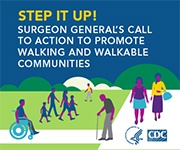1600 Clifton Road Atlanta, GA 30329-4027 USA
800-CDC-INFO (800-232-4636), TTY: 888-232-6348
Email: CDC-INFO
Set for February 7, 2019
(Black PR Wire) ATLANTA, GA -- National Black HIV/AIDS Awareness Day (NBHAAD) is February 7. Now in its 18th year, NBHAAD is a day to increase awareness about HIV among blacks/African Americans* and encourage people to get involved in prevention efforts, get tested, and get treatment if they are living with HIV.
HIV diagnoses have fallen in recent years among African American women—declining 20% from 2011 to 2015. Diagnoses among young African American gay and bisexual men (aged 13 to 24) are now stable, after years of increases. This good news shows that the nation’s HIV prevention efforts are helping to reduce HIV infections among African Americans.
But there is still much work to do. In 2016, African Americans accounted for 44% of HIV diagnoses, despite making up 12% of the U.S. population.** Also, HIV diagnoses are up among African American gay and bisexual men aged 25-34—increasing 30% from 2011 to 2015.
We need your help to make more progress in reducing HIV among African Americans. Join us on NBHAAD to promote HIV testing, prevention, and treatment and fight stigma around HIV.
What Can African Americans Do?
Get educated and get involved. Learn the facts about HIV and share this lifesaving information with others.
Get tested. Knowing your HIV status gives you important information to help keep you and your partner healthy. CDC recommends that every American get tested for HIV at least once and those at high risk get tested at least once a year. Unfortunately, too many people live with HIV for years before they know it, which means they aren’t getting the benefits of early treatment. If people living with HIV take HIV medicine as prescribed, they can stay healthy for many years. HIV medicine also helps prevent transmission to others.
To find a testing site near you, visit Get Tested, text your ZIP code to KNOWIT (566948), or call 1-800-CDC-INFO. You can also use a home testing kit, available in drugstores or online. More resources on testing are available from CDC’s Act Against AIDS campaign Doing It.
Protect yourself and your partner. Today, we have powerful tools to prevent HIV and help people living with HIV stay healthy . If you are living with HIV, start treatment as soon as possible after you get a diagnosis. The most important thing you can do is take HIV medicine as prescribed by your doctor.
HIV medicine lowers the amount of virus (viral load) in your body, and taking it every day can make your viral load undetectable. If you stay undetectable, you can stay healthy for many years, and you have effectively no risk of transmitting HIV to an HIV-negative partner through sex. To make sure you stay undetectable, take your medicine as prescribed, and see your provider regularly to get a viral load test.
There are many other actions you can take to prevent getting or transmitting HIV:
- Use condoms the right way every time you have sex. Learn the right way to use a male condom or a female condom.
- If you are HIV-negative but at high risk for HIV, take daily medicine to prevent HIV, called pre-exposure prophylaxis (PrEP).
- Talk to your doctor about post-exposure prophylaxis (PEP) if you think you have been exposed to HIV in the last 72 hours and are not on PrEP.
- Choose less risky sexual behaviors.
- Limit your number of sexual partners.
- Get tested and treated for other sexually transmitted diseases.
- Never share needles or other equipment to inject drugs (works).
- Remember, abstinence (not having sex) and not sharing needles or works are the only 100% effective ways to prevent HIV.
Learn more about how to protect yourself and your partners and get information tailored to meet your needs from CDC’s HIV Risk Reduction Tool (BETA).
What Can CDC Partners Do?
Health departments, community-based organizations, and other partners can address stigma and discrimination, extend the reach of their HIV prevention and testing services that focus on African Americans, and link those who are HIV-positive to care. Learn how CDC can help you.
* Referred to as African Americans in this feature.
** Does not include African Americans who are Hispanic/Latino.
# # #



